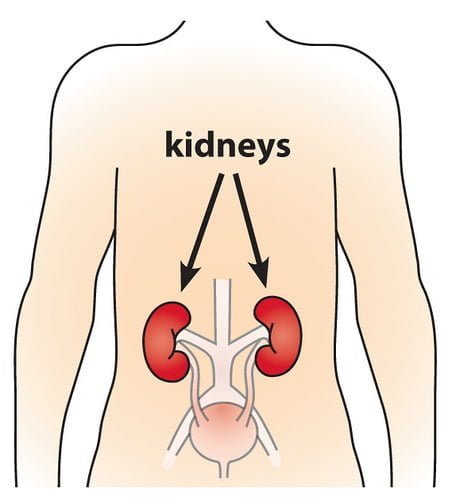More than one in 10 American adults have chronic kidney disease, according to the Centers for Disease Control and Prevention (CDC), leaving about 20 million people unable to adequately filter their blood.
As kidney disease advances, that buildup of waste products in the blood leads to other health problems, like anemia and heart disease. But while most research into kidney function is performed on lab mice, Anna Zisman, Assistant Professor of Medicine at the University of Chicago, is conducting a clinical trial at the Institute for Translational Medicine (ITM) Clinical Research Center (CRC) to better understand the human physiology of chronic kidney disease so that patients can one day receive customized, effective treatments for it.
 “The kidney is still a bit of a black box,” Zisman said. “For cancer, we know the molecular makeup of the abnormality and how we can use a drug to target it. There should be no reason that we can’t use some of the same tools to identify the genes involved with kidney disease. But we have to fully understand both healthy and unhealthy kidney function first.”
“The kidney is still a bit of a black box,” Zisman said. “For cancer, we know the molecular makeup of the abnormality and how we can use a drug to target it. There should be no reason that we can’t use some of the same tools to identify the genes involved with kidney disease. But we have to fully understand both healthy and unhealthy kidney function first.”
For example, Zisman said that accounting for socioeconomic and educational differences, African Americans have the same rate of early-stage chronic kidney disease as other groups – but they progress to end-stage kidney disease five times faster.
While research points to a genetic variant that may be accounting for some of that disparity, racial differences in kidney function remain largely unexplored.
Zisman is using the CRC in collaboration with ITM Affiliate NorthShore University HealthSystem to evaluate characteristics of kidney function in healthy African Americans and Caucasians as well as those with chronic kidney disease.
“None of this could be done without a CRC,” Zisman said. “We need the nutrition component and we need the technical expertise of the nursing staff.”
Nurses collect urine and blood samples from Zisman’s clinical trial outpatients every 20 minutes for three hours. At each visit participants are also given meals customized to different nutritional levels, with nurses collecting their samples before and after eating to analyze the food’s effect on their kidney function.
“It’s crucial,” Zisman said. “The meals need to be adjusted for body size. It’s not something that I can just cook up.”
Zisman is specifically studying the racial differences in the relationship between the function of a particular site in the kidney known as the proximal tubule and the concentration of potential toxins in the blood and urine.
Preliminary findings suggest that the proximal tubule performance varies based on one’s level of kidney impairment and race.
The conclusions from Zisman’s study could be translated to help advance personalized medicine for conditions like high blood pressure. For instance, the proximal tubule is responsible for absorbing sodium, which studies show can be a major factor in hypertension.
“This may mean that the drugs that we use to target high blood pressure in patients with chronic kidney disease may need to be individualized by proximal tubule function,” she said. “And that can be more individually targeted based on where the person falls on a spectrum by age, race, and renal function.”
Zisman said the CRC has played a vital role in her research and that it was one of the reasons she was drawn to the University.
“When I was interviewing for faculty jobs, the CRC was one of the things that UChicago could offer that other places did not have worked out as well,” she said. “And as far as academic research, this is what I need.”
Connect with Anna Zisman at azisman@medicine.bsd.uchicago.edu.
Need to conduct a study? Learn more about the ITM’s Clinical Research Center (CRC) by clicking here or contacting Jennifer Kilkus, the CRC’s Manager of Bionutrition Research, at jkilkus@bsd.uchicago.edu.



